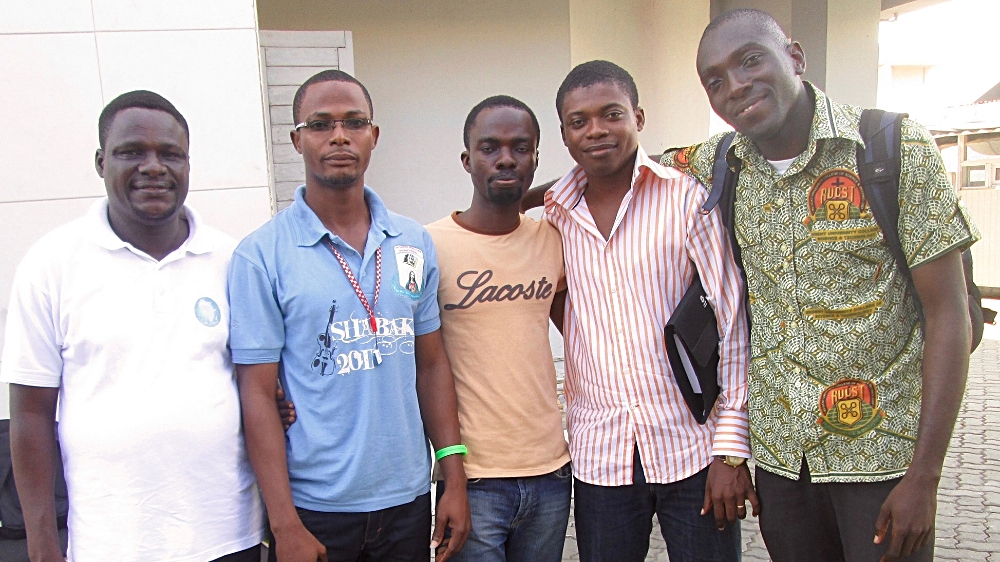COVID-19 has put leadership to the test in an unforeseeable manner. Public and private sector leaders have seen a test of decisiveness, integrity, and managing people in a time of crisis. Losing loved ones and witnessing human suffering and isolation has brought many together, exposed character flaws, and led others to re-examine what they value most in life. Church members had the opportunity to observe their leaders closely on a screen as workers observed value alignments in how bosses responded to the pandemic, George Floyd’s death, and culture wars fought in the public arena.
The verdict is self-evident. Some have gained new members, while others have received short notices of exits. It is estimated that the difference between highly effective leaders and average ones is not more than four percent. The value lies in how leaders respond to crises or change. COVID-19 has done much damage. It has exposed bravado, hypocrisy, and ineptitude at the top. The virus has also revealed that integrity, care, and prudence are the marks of true leaders who possess a natural ability to infuse life, hope, and love in difficult times.
The ‘O’ of my leadership alphabet pertains to areas in which we all need to grow or flourish in times like this because leadership is personal, not a performance on set.
‘O’ is for Optimism
It is incredible to listen to those who nearly died or lost relatives share lessons from the COVID-19 pandemic. I hear stories of making their lives count and eradicating relational toxicity in pursuit of respect for human dignity. Negativity tickles the idle mind, and the media know it. It is a truism that toxicity drains while optimism energizes.
Optimism is not the denial of reality but a positive posture for better outcomes. Harvey Mackey once said, “An optimist understands that life can be a bumpy road, but at least it is leading somewhere.” Optimistic leaders seek and explore viable solutions amid challenges. They exercise the capacity to empathize, sympathize but not pity as they drive change. Presence and integrity command to follow the lead in hope. These leaders exhibit an incredible ability to concretize hope with a clearly articulated vision. Their optimism is not mere pronouncements. When conditions are doom and gloom, they acknowledge reality for what it is and engage all prowess for remedies.
Some have folded on the back of COVID-19, while others have seized the opportunity to make a difference. Factories retooled. Zoom, Amazon, and many small companies identified what we needed and increased their margins. Optimists regularly re-examine their clients’ needs to offer the next exciting thing while pessimists look to blame. To be a leader of the times, let fear give faith a chance. Posture is paramount; let optimism unleash potential.
‘O’ is for Open-mindedness
The challenges of our world today have no room for close-minded leaders. Yet, open-mindedness does not mean liberal, no boundaries, and no filter. It conveys a readiness or openness to explore new ideas, new ventures, or change where necessary. Many micro-enterprises are failing partly due to their inability to adapt to changing conditions. Open-mindedness is gold. Those who relish an unchanging mindset are getting exhausted and drowning in the sea of the new normal.
Look for opportunities in the debris, and you may find recyclable gems. One story from a restaurant owner struck me. A TV network interviewed a lady business owner about the success her restaurant experienced during the COVID lockdown. She talked about her swift response assembling her team to explore different ways to provide meals for their customers. In the meantime, they devised new strategies and modes of delivery and consequently increased their profit margins fourfold in six months. Be open to change. Change is uncomfortable, but readiness to change is the locus of education, innovation, and acceleration. The growing pain of change is temporary. The status quo conveys a false sense of security in the rapidly changing world. Dare to explore.
‘O’ is for Opportunity
Opportunity is a nuisance to the unprepared. Leaders who altered tasks, lifestyles, and concepts of beauty are those who saw and seized the opportunity that others could not see. A necessary matrix of innovation now involves embracing disruption. Today’s frontline leaders know how to thoroughly assess failed products or ventures in search of an opportunity of what is yet to come. Yesterday’s failures gave birth to today’s successes. Yet, not many leaders are poised to look for opportunity.
Discernment, decision, and dedication are vital to seeing brighter prospects amidst seemingly chaotic conditions. Some panic, and others gaze at the sky in search of a savior. Leaders explore how they may accept, adjust, and assail through the storm. Leaders see and seize the opportunity when everyone else is looking for someone to blame. Remember, great inventions are born out of adversity. Successful leaders are not always the ones who had it all planned out. Frontline leaders venture to meet a need when everybody else is wondering what to do – that’s called opportunity. In the words of Milton Berle, ‘If opportunity doesn’t knock, build a door.’ Look for opportunity when all others are blinded and overwhelmed by fear.
‘O’ is for Organization
Leaders who do not plan and organize their operations are usually engineers of waste. They hire to fill positions without assessing real needs. They duplicate personnel and fuel tensions among employees. These leaders are self-righteous and oblivious to the psychological fatigue they emit. COVID-19 and remote work remind us how little we need in our homes to accomplish tasks.
Organized leaders are architects of healthy organizational culture. ‘Less is more.’ They hire the right talent to do more and get paid more. When fewer people achieve more and get compensated well, it results in increased morale and mutual satisfaction. Leaders who are unorganized in their private life tend to be unorganized in their workplace. Organization improves efficiency.
Do people know what you expect of them? Do you hire to replace personalities or to get the job done? What is the chain of command, even where team culture is paramount? Who should be held responsible for failure? Start by working on yourself. An organized leader has an organized mind. Those who are comfortable with filth, chaos, and clutter are naturally prone to be disorganized leaders. What is a quick way to tell? Look at their desk, office, or even how they dress, and you may be able to differentiate high achievers who prefer organized chaos and organized leaders who rely on the expertise of others.
Lack of planning and structure affects execution, productivity levels, and perception. Don’t buy the excuses. Too much structure without flexibility can hinder growth, but too little can be disastrous. Effective leaders intentionally cultivate an organizational culture with great attention to people, products, and processes. If God used an organized plan with daily assessment protocols when He created (also out of chaos), then leaders with more limited forecasting abilities need organization all the more.
‘O’ is for Oversight
Many people want titles, huge salaries, and call themselves leaders. Compensation and benefits are not always indicative of the proper functioning of leadership. A leader can identify talents, mobilize teams, and accomplish goals with mutual satisfaction. They possess the ability to see the big picture and the minute details and guide their team’s unleashed talents to meet desired outcomes. They have the courage to eliminate imperfections and strive for excellence.
Zero management is as bad as micro-managing. Successful leaders supervise productivity with respect for humanity and attention to quality. Today’s best leaders are those who know how to manage smart people and high achievers to maximize productivity. They are confident in their ability and humble in service. Good oversight means contractors do not determine the quality standards to deliver expected results. A quick look at development in African countries says it all. Africa sees less than ideal infrastructure and products due to improper oversight of foreign contractors and quality assurance protocols. Good oversight requires presence, attention to detail, and a readiness to address problems. Long working hours and productivity are not the same. Lack of responsible oversight results in waste—waste of money, time, and talents.
So, how engaged are you with your scope of responsibility? How often do you attend to quality products, quality use of time, and ensure efficient use of resources?
All qualities in the ‘O’ alphabet can be cultivated and improved. Leaders who are humble constantly reflect on their own limitations and need for growth. As a Christian, I have observed a direct correlation between my readiness to learn to follow Jesus Christ and my ability to lead people. Dare to make a difference in desperate times like these. I end with the words of the great Maya Angelou, “There is no greater agony than bearing an untold story inside you.” You have it in you to make the world a better place.






